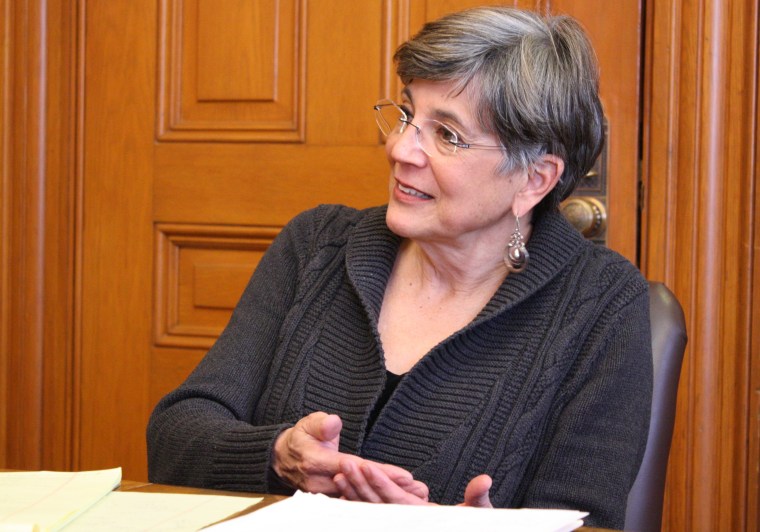Last week, the nation caught wind of an
astonishing proposal working its way through the Kansas legislature. Kansans who could cite "sincerely held religious beliefs" against homosexuality would effectively have license to discriminate -- restaurants could deny gay couples service; hotels could deny gay couples rooms, even public-sector workers could refuse to provide services to LGBT Kansans.
This bill actually passed the Kansas House with relative ease and many reports suggested it'd fare well in the Republican-controlled state Senate, too. But that's
not what happened.
A bill that would have allowed individuals to refuse to provide business services to same-sex couples in Kansas because of religious beliefs met a surprising and quick end last week when conservative senators sided with liberal advocates in saying that the measure promoted discrimination. [...] Susan Wagle, a conservative Republican who is president of the Kansas Senate, raised opposition to the House measure, saying she had "grown concerned about the practical impact of the bill" and "my members don't condone discrimination."
Over the course of just a few days, the bill to make anti-gay discrimination easier went from being "likely to pass" to "six feet under" with remarkable speed.
Thomas Witt, the executive director of Equality Kansas, told the New York Times, "The public outcry by midweek had reached such a volume that the Senate just wasn't going to be able to take it up. I don't know what surprised me more, the level of public involvement in this or the speed with which the Senate president basically ended the prospects for the bill."
Yes, as it turns out, even the fiercest, conservative, red-state culture warriors are sometimes capable of shame.
It's important to note, however, that this wasn't just a matter of right vs. left, or Democrats vs. Republicans.
To be sure, the proposal drew intense criticism from the Kansas ACLU, Equality Kansas, Democratic leaders, and Kansas' progressive minority, but my Maddow Show colleague Kate Osborn flagged this
interesting item from the
Topeka Captial-Journal about the one lobbying force that arguably tipped the scales.
Legislative leaders said Friday that a bill House supporters passed with the stated intent of protecting religious freedom will be substantially reworked after the state's business community sided with opponents who argued it promoted discrimination.
The Kansas Chamber of Commerce opposed the bill. So did the Wichita Independent Business Association. And Kansas City Power and Light. And AT&T Kansas.
By Friday, Wagle, the state Senate president, conceded the bill "negatively impacts both small and large businesses." And at that point, support among skeptical lawmakers simply collapsed.
Proponents have said, however, that they still hope to improve the legislation, so don't be too surprised if a similar measure makes a comeback in Kansas sometime soon.
